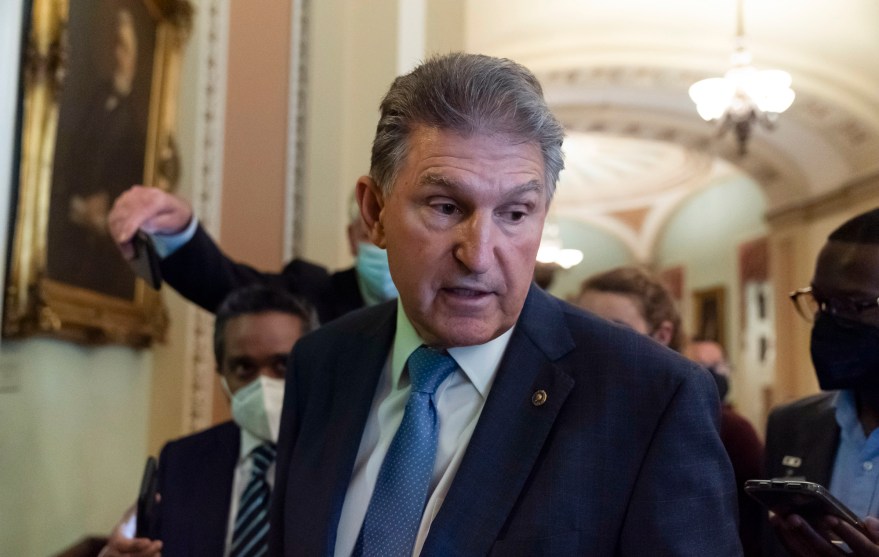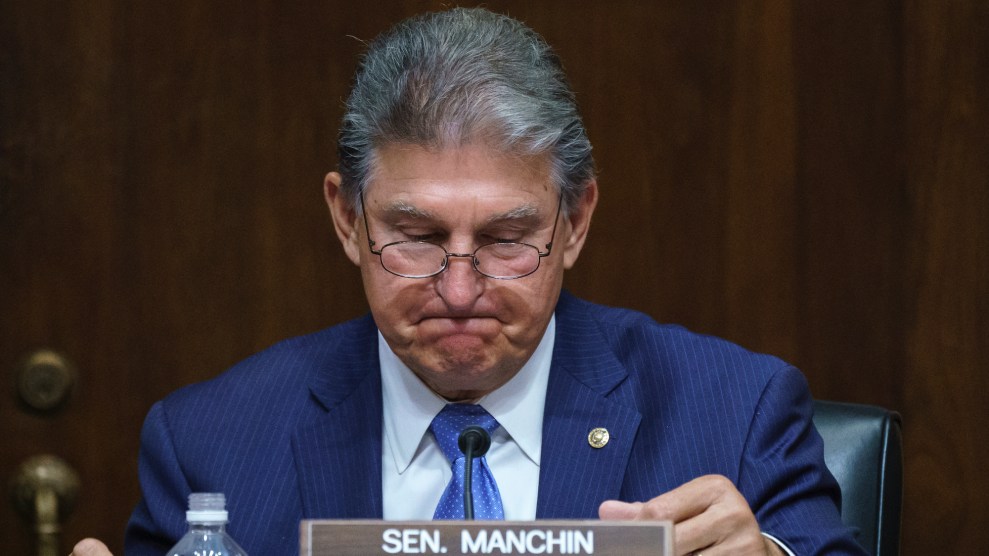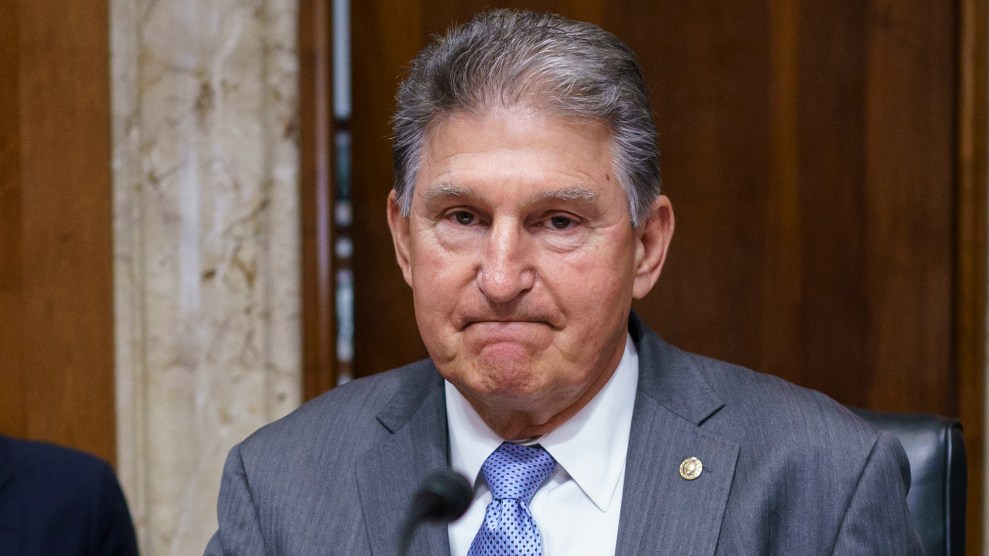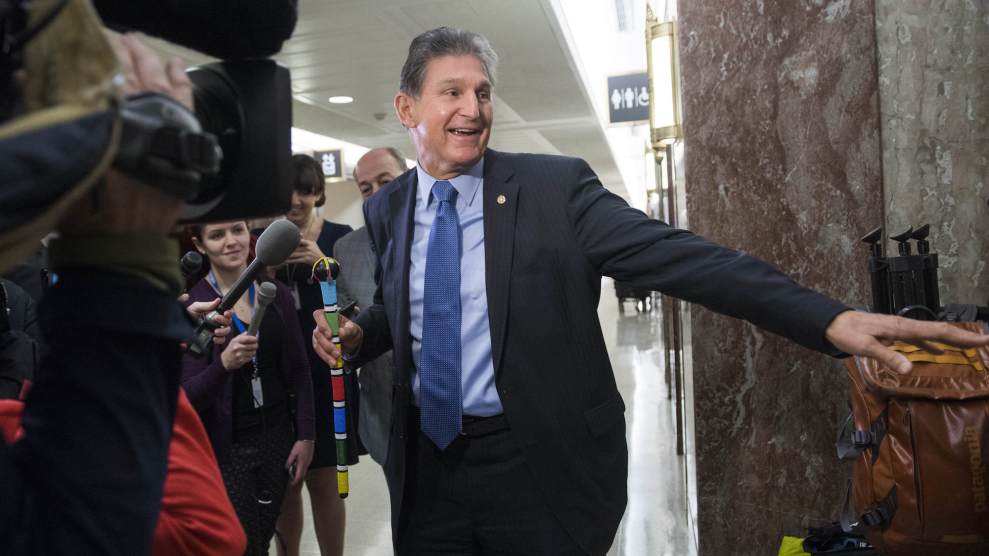
Alex Brandon/AP
Congressional Democrats need just two more votes to push through President Joe Biden’s sweeping infrastructure bill, but thanks to Senator Joe Manchin (D-W.V.), one of the most consequential pieces of climate change policy probably won’t be included.
On Friday night, several news outlets reported that the White House is looking to scale back a plan to include $150 billion clean electricity program after Manchin made clear his opposition. The program is designed to reward utilities that shut down their older coal and natural gas plants and switch to cleaner solar, wind or nuclear options—it would also punish utilities that don’t make the switch. Without the program in the legislation, much of the climate change punch will be stripped from it.
“This is absolutely the most important climate policy in the package,” one Senate Democrat adviser told the New York Times. “We fundamentally need it to meet our climate goals. That’s just the reality. And now we can’t. So this is pretty sad.”
As a moderate from a fairly red state, Manchin has pushed back on Biden’s agenda and, along with Arizona Senator Kyrsten Sinema, held up Democratic efforts to get several massive pieces of Biden’s agenda through a nearly evenly-divided Congress. Manchin has said he wants an infrastructure bill of just $1.5 trillion. That’s $2 trillion less than what his fellow Democrats have already largely settled on. Besides his opposition to the clean electricity program, Manchin has also made it clear he is not a fan of many of the family-focused programs supported by his party.
Manchin’s opposition to the clean electricity program is not entirely a surprise. Although the coal industry is a fraction of the size it used to be, and employs just around 14,000 people in the state (for context, more people are employed by the fast food industry in West Virginia) the jobs are relatively high-paying and the state is the second largest producer of coal.
Also, Manchin, like many powerful people in the state, is personally heavily invested in the industry. Before joining the Senate, Manchin founded a coal brokerage firm, which he has handed over control of but still profits from. By one estimate he has earned about $45 million from the business since joining the Senate.












